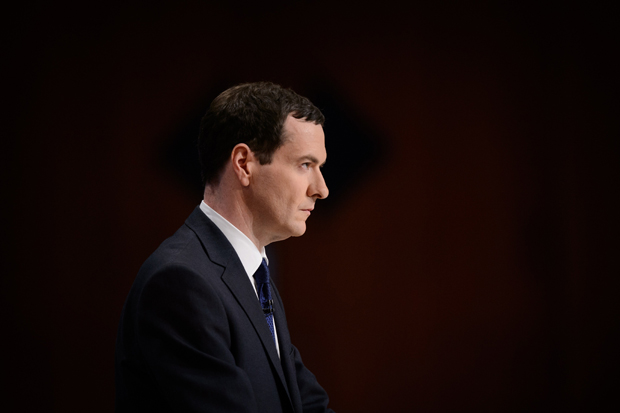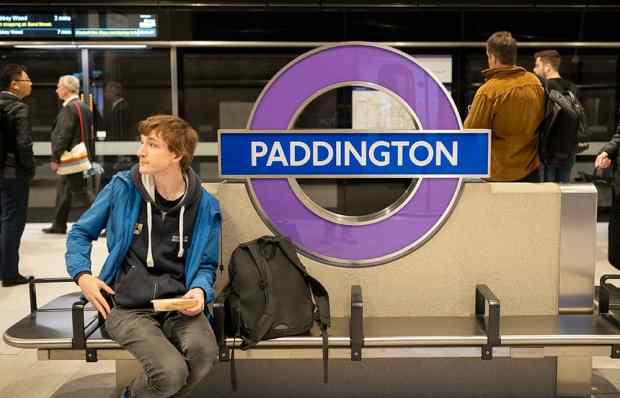George Osborne’s promise to crack down on multinational companies’ avoidance of UK taxes by the use of impenetrable devices such as the ‘Double Irish’ and the ‘Dutch Sandwich’ certainly has the support of this column. I have long argued that the ‘fiduciary duty’ (identified by Google chairman Eric Schmidt) to minimise tax bills within the law for the benefit of shareholders has to be balanced against a moral duty to pay at least a modicum of tax in every profitable territory. Google, Apple, Amazon and eBay, as well as Starbucks and big names of the pharmaceutical sector, are among those known to use smart schemes which variously involve sales bookings in low-tax Ireland or Luxembourg, transfers in and out of the Netherlands, and ‘royalty’ payments (for the use of Starbucks branding, for instance) in any other direction that saves a few tax dollars.
Those dollars add up to billions at stake for Osborne’s deficit-laden Treasury. But like so many party conference pledges, this one will be hard to enforce, not least because it could conflict with EU ‘single market’ rules that encourage selling from one member state to another and decree that tax liabilities should fall in the domicile of the seller, not the buyer. Given that British consumers will still want to buy the products and use the services of the multinationals concerned, Ukip can argue that it would be far easier to tax them properly, and no great discouragement to their trade, if Britain was outside the EU. Osborne should be careful he’s not offering Nigel Farage another open goal.
Foundation demolished
The irony of the demutualisation of the Northern Rock building society in 1997 was that it gave birth not only to one of Britain’s most reckless banks, but also to one of the country’s most competent regional charities. The Northern Rock Foundation held 15 per cent of the bank’s shares and was entitled to 5 per cent of its profits; before the bank’s collapse in September 2007, the endowment was generating £25 million a year for projects to help the vulnerable and fund social research in the north-east and Cumbria. Widely distributed, with smaller charities often following its lead, the foundation’s grant-giving made a huge impact across a disadvantaged region — and was some compensation, perhaps, for the destructive folly of Northern Rock’s mortgage lending.
Funding of the charity by the bank continued at a reduced level after Northern Rock was nationalised in 2008. But when the rump of its business and branch network was sold to Virgin Money for £747 million in January 2012, the foundation’s future was uncertain. Virgin offered continuing funding of £1 million a year for five years, but only on condition that the charity raised a matching £3 million a year from other private-sector sources. Trustees have now decided that’s an impossible challenge and they must ‘begin to prepare for the foundation’s now likely eventual closure’, while Virgin has separately announced a face-saving £1 million for youth projects in the region.
The not-unexpected news of the founda-tion’s demise was reported in the North last week, unconnected to the story in the national media that Virgin Money, having reported first-half profits of £60 million, is about to float with a valuation of £2 billion. In what was considered one of the wiliest deals of Sir Richard Branson’s long career, his Virgin Group put only £50 million of its own cash into the 2012 takeover of Northern Rock but emerged with 47 per cent of the combined business, which includes Virgin credit cards and savings products. The other big investor was US billionaire Wilbur Ross, and both will top up their fortunes from the flotation: ‘a paper profit of several hundred million’ is one prediction. Managers led by chief executive Jayne-Anne Gadhia will be enriched by share incentives, and the Treasury will pick up £50 million under the terms of the 2012 sale.
The only outright loser is the foundation, the last distant echo of the community role of the Victorian building societies that merged to form Northern Rock. Meanwhile, Branson has been basking in the spotlight again this past fortnight — and Tom Bower and I inadvertently provided an illustration last week of the way informed opinion divides between those who grudgingly admire the Virgin tycoon and those who will always despise him. Let me not reopen that argument, but if Sir Richard wants to win more admirers in the north-east, I suggest he diverts a thin slice of his Virgin Money winnings into a radically improved offer to save the Northern Rock Foundation.
New exodus?
Twenty-five years ago, as an expatriate banker in Hong Kong, I was strongly in sympathy with both the nascent pro-democracy movement there and Charles Moore’s controversial campaign in The Spectator for UK ‘right of abode’ to be offered to all 3.25 million Hong Kong British passport holders. I even wrote an article — to the horror, I’m told, of former Jardine Matheson taipan (and former Spectator proprietor) Henry Keswick — proposing that a new Hong Kong should be built to accommodate the coming exodus on the Solway coast of south-west Scotland, where the Keswicks’ and others’ Far Eastern trading fortunes had been turned into landed estates. This summer I talked to several Hong Kong residents, expat and Chinese, who all agreed that the mood has changed and that the hand of Beijing has become markedly more threatening. This week’s mass demonstrations, and chilling official responses to them, may signal the beginning of the exodus that did not happen post-1989 when nervousness about the impending handover to China gradually subsided.
The London property market has risen 21 per cent in the past 12 months, according to Nationwide, while Scotland (traumatised by too much democracy, perhaps) registered only 5 per cent and offers much better value. If you want to spot the next wave of money into both markets, I suggest, keep watching the news from Hong Kong.
Got something to add? Join the discussion and comment below.
Get 10 issues for just $10
Subscribe to The Spectator Australia today for the next 10 magazine issues, plus full online access, for just $10.
You might disagree with half of it, but you’ll enjoy reading all of it. Try your first month for free, then just $2 a week for the remainder of your first year.















Comments
Don't miss out
Join the conversation with other Spectator Australia readers. Subscribe to leave a comment.
SUBSCRIBEAlready a subscriber? Log in